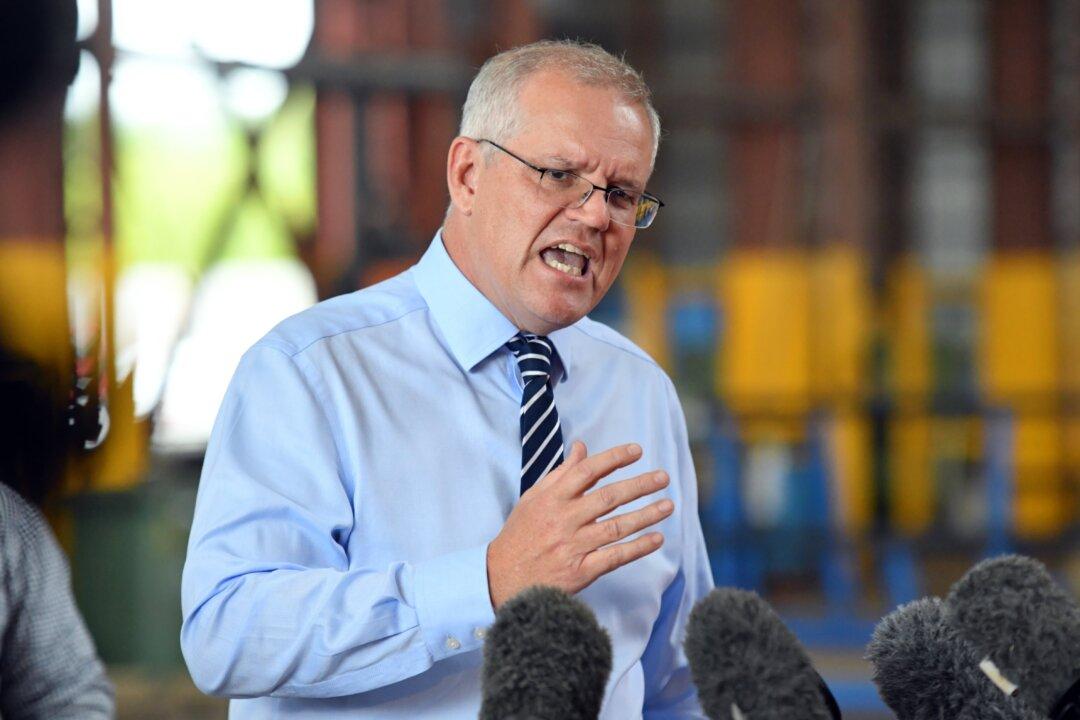Prime Minister Scott Morrison has continued to warn against voting for so-called “teal” independents—backed by the Climate 200 group—saying it would destabilise the government.
“Over the last three years, in particular, we’ve had the strength of a majority government,” the prime minister told reporters on Perth on May 6. “If each and every day we had to go and negotiate for the government’s existence with a cavalcade of independents or being pushed to-and-fro by others, then Australia would not have had the strength to push through the pandemic.”





